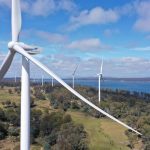Feed aggregator
UN scientific meeting adopts global biodiversity monitoring approach
Carbon holdings tumble across exchange-traded funds amid price stability, macro downturn
Euro Markets: Midday Update
Gaganyaan: India to launch test flight ahead of sending man into space
Ex-officials at UN farming body say work on methane emissions was censored
Pressure from agriculture lobbies led to role of cattle in rising global temperatures being underplayed by FAO, claim sources
- ‘The anti-livestock people are a pest’: how UN food body played down role of farming in climate change
- Analysis: Impact of farming on climate crisis will be a key Cop topic – finally
Former officials in the UN’s farming wing have said they were censored, sabotaged, undermined and victimised for more than a decade after they wrote about the hugely damaging contribution of methane emissions from livestock to global heating.
Team members at the UN Food and Agriculture Organization (FAO) tasked with estimating cattle’s contribution to soaring temperatures said that pressure from farm-friendly funding states was felt throughout the FAO’s Rome headquarters and coincided with attempts by FAO leadership to muzzle their work.
Continue reading...International gas union backs gas-made hydrogen
CN Markets: CEA volumes almost double, price reaches new high amid steady compliance demand
Weather tracker: Storm Babet leaves trail of destruction across Portugal
As front moves north to batter UK coasts, Storm Aline brings more heavy rain and strong winds to Iberian peninsula
Although Storm Babet has been battering the coasts of the UK during the second half of this week, it had already left behind a trail of destruction across Portugal as it developed out in the Atlantic. Strong winds and torrential rain on Monday night into Tuesday resulted in flooding, with streets swamped underwater and the drainage system at Faro airport in south Portugal unable to cope under the deluge.
Holidaymakers and local people were left running for cover as ceilings in the airport terminal building collapsed when they could no longer hold back the rainfall.
Continue reading...John Vidal, former Guardian environment editor, dies aged 74
Pioneering journalist will be remembered for passion for social justice and putting people at centre of stories
John Vidal, the Guardian’s former environment editor, has died aged 74. He died peacefully in hospital on Thursday where he was being treated for cancer.
Vidal reported on the environment for the Guardian for almost three decades until retiring in 2017, calling it “the greatest job on Earth”. Afterwards, he continued to report from around the world with his trademark energy and enthusiasm and published a book, Fevered Planet: How Diseases Emerge When We Harm Nature, in June this year.
Continue reading...Wild birds gain immunity to avian flu in ‘encouraging sign’ amid deadly outbreak
Scientists find antibodies in Scottish populations of northern gannets and shags as poultry infections in Britain fall dramatically
Some birds have developed immunity to avian flu, according to scientists who say there are “encouraging signs” that the deadly virus could kill fewer birds this winter.
The current H5N1 bird flu outbreak, which started in 2021, has been the worst recorded, and is thought to have killed millions of wild birds. Mortality rates appeared to be very high among wild birds, but it was not known how many survived and gained immunity.
Continue reading...Scorsese tells half the story in Killers of the Flower Moon: here’s what happened next to the Osage people | Greg Palast
Hundreds of Native Americans were murdered for their oil in the 1920s. They’re still fighting the US government for what is theirs
This week, director Martin Scorsese releases his film Killers of the Flower Moon: the true story of the mass murder of Osage Native Americans and the plot to steal the tribe’s oil wealth. The film is a powerful telling of what came to be known as the Reign of Terror, a period that resulted in the deaths of as many as 200 Osage. But the story didn’t end there. For the past 27 years, I have been reporting on what happened afterwards. My documentary Long Knife – produced by George DiCaprio, with his son Leonardo’s encouragement – recounts, in the words of the Osage people, what happened in the century since the killings portrayed in the film, from the Terror to oil thievery to today’s fight for sovereignty.
Over the past century, the Osage Nation has continued to suffer massive oil thievery, impoverishment and oil sludge poisoning on their Oklahoma reservation. “It’s not over,” Osage principal chief, Geoffrey Standing Bear, tells me. “It’s still happening.” At the heart of it is legal control of Osage native land by the US Bureau of Indian Affairs, an entity the Osage call the Ma-he-tah, or the Long Knife. Standing Bear, a lawyer himself, likens the arrangement to a military occupation.
Continue reading...The week in wildlife – in pictures
The best of this week’s wildlife photographs, including rescued baby squirrels, a capped langur and battling deer
Continue reading...Migrant workers toil in perilous heat to prepare for Cop28 climate talks in UAE
Report highlights evidence of workers from Africa and Asia labouring in 42C heat in Dubai to build conference facilities
Migrant workers in Dubai have been working in dangerously hot temperatures to get conference facilities ready for world leaders attending this year’s international Cop28 climate talks, according to a new investigation.
FairSquare, a human rights research and advocacy group, obtained evidence of more than a dozen migrant workers from Africa and Asia labouring outside at three Cop28 sites in early September as temperatures hit 42C (107F) in Dubai – the most populous city in the United Arab Emirates (UAE).
Continue reading...Wind farm gets green light for planning change, bigger turbines
 Woolsthorpe wind farm gets approval for reduced total number of turbines – but at a much bigger size.
Woolsthorpe wind farm gets approval for reduced total number of turbines – but at a much bigger size.
The post Wind farm gets green light for planning change, bigger turbines appeared first on RenewEconomy.
Energy Insiders Podcast: Australia’s methane problem
 Methane expert Peter Rayner on Australia’s potent climate problem, and a solution. Plus: Origin’s black hole, Genex deals and big battery bids.
Methane expert Peter Rayner on Australia’s potent climate problem, and a solution. Plus: Origin’s black hole, Genex deals and big battery bids.
The post Energy Insiders Podcast: Australia’s methane problem appeared first on RenewEconomy.
Clean Energy Regulator issues guidance on Safeguard multi-year monitoring periods
We must not let big emitters greenwash their emissions with renewables free kick
 We can't afford to give free kicks to heavy emitters, especially when Australia needs all the help it can get to reach 82% renewables by 2030.
We can't afford to give free kicks to heavy emitters, especially when Australia needs all the help it can get to reach 82% renewables by 2030.
The post We must not let big emitters greenwash their emissions with renewables free kick appeared first on RenewEconomy.
Fortescue lays out huge wind, solar and storage plans to take fossil fuels out of Pilbara
 Fortescue outlines its path to "real zero" at its Pilbara mines with plans for multiple gigawatts of solar, wind and battery storage, plus an electrified fleet of trucks and trains.
Fortescue outlines its path to "real zero" at its Pilbara mines with plans for multiple gigawatts of solar, wind and battery storage, plus an electrified fleet of trucks and trains.
The post Fortescue lays out huge wind, solar and storage plans to take fossil fuels out of Pilbara appeared first on RenewEconomy.
Sharpe seeks to smooth road to renewable zones with $128m community “downpayment”
 NSW make $128m commitment to "community projects and employment opportunities" in the Central-West Orana Renewable Energy Zone, to smooth the exit from coal.
NSW make $128m commitment to "community projects and employment opportunities" in the Central-West Orana Renewable Energy Zone, to smooth the exit from coal.
The post Sharpe seeks to smooth road to renewable zones with $128m community “downpayment” appeared first on RenewEconomy.
Toyota and Telstra pivot into hydrogen fuel cell generators for off grid sites
 Toyota Australia announces $3m tilt at stationary hydrogen fuel cell power generator assembly and distribution, in a deal with France-based EODev.
Toyota Australia announces $3m tilt at stationary hydrogen fuel cell power generator assembly and distribution, in a deal with France-based EODev.
The post Toyota and Telstra pivot into hydrogen fuel cell generators for off grid sites appeared first on RenewEconomy.



